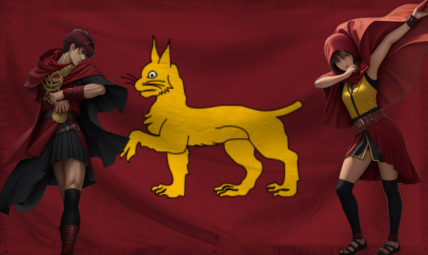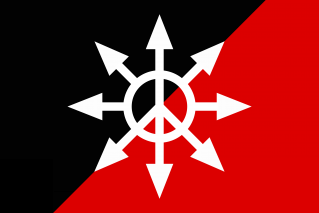The way this works will be extremely simple: just use the code below to fill out the information on the formal title of your nation, its government type, its prevailing ideologies, and a small description of how its government is run as well as what some of its key policies are. I will add your nation to the Index by hyperlinking your name to the entry you posted. Also, if you have already made an entry but want to update it if anything has changed since you posted, simply make another one and inform me if it is a replacement (though if you honestly forget to say that it is a replacement entry, I would probably figure that out by myself).
- Code: Select all
[box][b]Official Nation Name:[/b]
[b]Name(s) Of The Major Ideology/Ideologies Of The Nation (If Any):[/b]
[b]Government Type:[/b]
[b]How Does The Government Function? (5 Sentences Minimum):[/b]
[b]What Are Some Of The Government's Positions/Policies? (5 Sentences Minimum):[/b][/box]
EXAMPLE:
Official Nation Name: The Global Sovereign Confederacy Of Aleckandor
Name(s) Of The Major Ideology/Ideologies (If Any): Semi-Decentralized Transnationalism, Social Holonic Philosophy, Benevolent Pan-Yervhennism, Abolition Of Global Slavery, Zenithalism, Georgist/Geoist Land Value Taxation, Social Conservatism, Illiberal Ethnopluralism, Foreign Policy Interventionism, Anti-Anarchism, Anti-Communism, Anti-Corporatocracy
Government Type: Transnational Superstate/Confederal Republic
How Does The Government Function? (5 Sentences Minimum): Aleckandor is not simply one nation with smaller subdivisions. It is rather a brotherhood of many different sovereign nations bound together underneath a new overarching identity and hegemonic body politic. These national subdivisions of the Confederacy all participate in the greater political processes carried out by the ad hoc nonpartisan blocs of the bicameral Legislative Consortium, made up of an upper house known as the Senatorial Assemblage and a lower house known as the Concert Of Delegations. A maximum of two Senators are allowed per every Organized Province, while any Amplificative Programs created by an Organized Province get one. All OrgaProvs and AmpliProgs get to have Delegates, but the number of how many they can put into office depends largely upon their regional populations. A single Grand-Protector is chosen to lead the Confederacy for a maximum of two terms worth five years each as supreme executive by a Grand Collegiate Of Special Electors. The distribution of the appointed Special Electors varies from prefecture to prefecture largely by the number of fixed lower house voting districts that exist within their borders. But going back to the divisional governments of the OrgaProvs themselves, it is worth noting that they have virtually free reign over the vast majority of their intragovernmental affairs unless a widely supported piece of constitutionally-supported confederal legislation binds them to a certain economic or sociopolitical standard that they must enforce, an aspect many observers from both within and outside Aleckandor refer to as 'semi-decentralization'. Though the Confederacy itself is a functionally a confederal constitutional republic, most of its parts on the regional scale of widely varying forms of governmental organization; some prefectures operate as multiparty parliamentary democracies, some are council-managed authoritarian states, and others are hereditary monarchies. In the end, however, the participation of all the prefectures bound to the Confederacy as a matter of principle makes them all accountable to the ultimate success and stability of one another underneath their shared global domain.
What Are Some Of The Government's Positions/Policies? (5 Sentences Minimum): Being founded in the wake of a revolt of gray-skinned Nord Yervhennian slaves, the Aleckandorean Confederacy is naturally an outspoken supporter for global abolitionism and is willing to use aggressively direct military force against slaver societies wherever possible. And speaking of Nord Yervhennians, they compose the vast majority of the Aleckandorean citizenry; as a result, the Confederacy has stepped up the tacit role of representing the interests and ambitions of much of the gray race throughout the Cosmonexus. Many Aleckandoreans also take after a political school known as Zenithalism, whose major philosophical tenets include a respect for the atavistic, perennial nature of objective traditional morals as well as a highly regimented form of patriotic thought framed through the belief that physical action is the best way to translate values which work towards the defense of and refinement of good civilization as well as the assault on and destruction of bad civilization; it is a hard right authoritarian ideology that espouses cultural nationalism (a middle ground between civic and ethnic nationalism), strong regulation and oversight over both domestic economic activity and high finance markets, meritocratic autonomous scholar-bureaucratic governance that demands the highest standards of loyalty as well as competence, vehement opposition to the enslavement of human beings of any race or creed, and support for local community paramilitary individuals or even tactical formations that would be endowed by the state with the arms and authority to dispense retributive justice and police behavior in public. Though Zenithalism is not an explicit official ideology of the realm, it is the official policy of many provinces - and from there - influences Aleckandorean politics on a major scale to the point that it seems to dominate the everyday lifestyles and ideational motives for a major part of the electorate. In the realm of economic management, the Confederacy has found great affinity for the work and ideas of land value theorists such as Henry George and those who followed after him, for it is now codified into national law that all OrgaProvs and AmpliProgs and Martial Segmenta have geoist-styled land value taxation systems that make all land commonly leased property with incentives for increased productivity and efficiency. The government and public at large also have a disdain for communistic and corporatocratic systems equally; it views the former as antithetical to the natural development of a higher human cultural schema as well as being damning recipe for massive-scale economic catastrophe, while the latter is viewed as an unnatural means through which people are forced to become dehumanized to the point that they are subservient to market forces and their drivers rather than to ethical philosophies or any other higher ideals. To this end, Aleckandoreans are often ready and willing to skip all diplomatic overtures and head straight to violence when confronted by manifestations of such systems.










